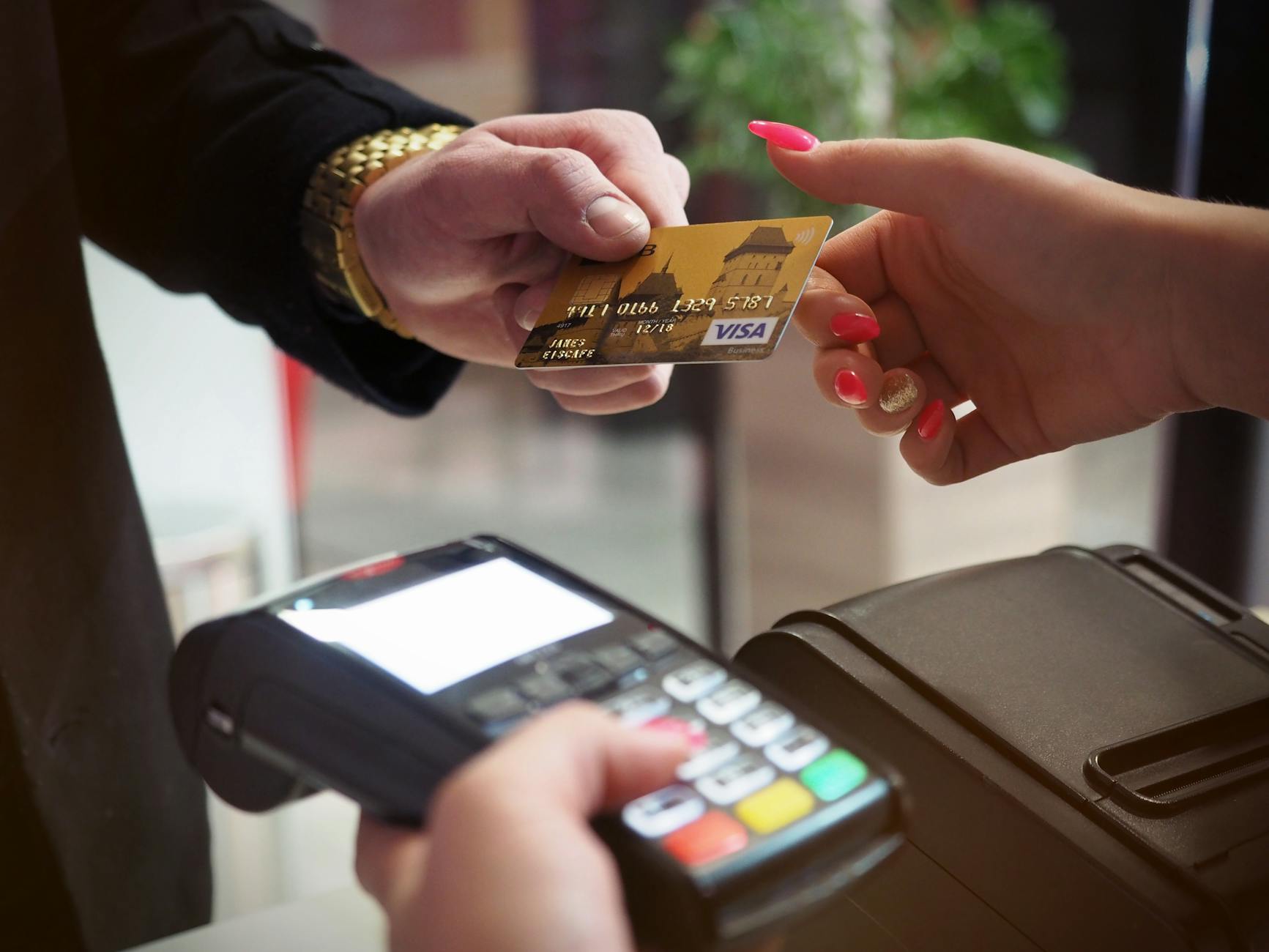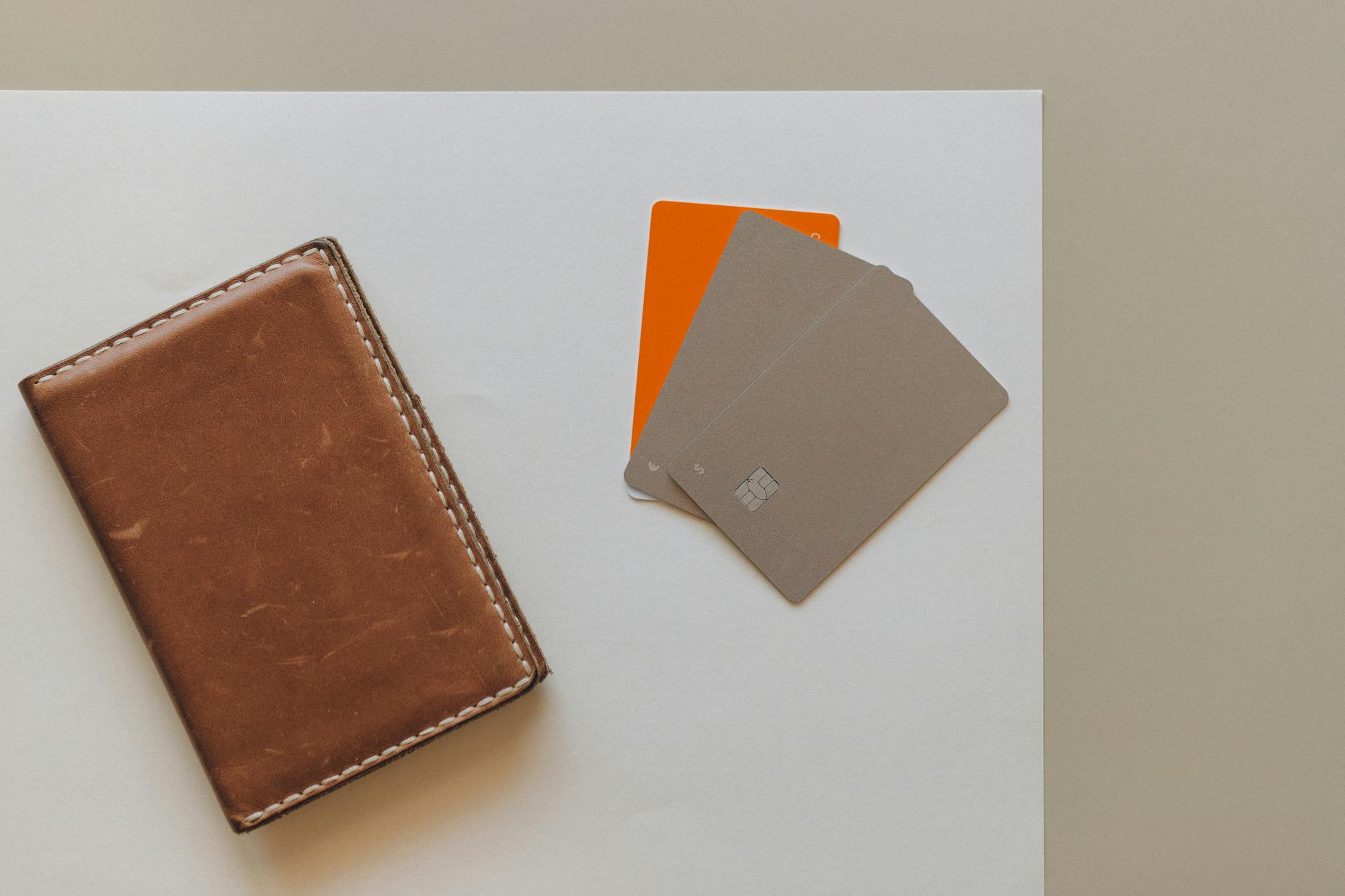Why Paying Your Credit Card Dues on Time Matters [2024 Guide]
Why Paying Your Credit Card Dues on Time Matters [2024 Guide]
Managing credit wisely is essential in today’s financial world. One key part of that management is paying credit card dues on time. Why is this so important? Because late payments can lead to hefty fees, a drop in your credit score, and even increased interest rates.
In this post, we'll break down why timely payments are crucial for your financial health. By prioritizing on-time payments, you not only maintain a good credit score but also lower the cost of borrowing in the future. Learn how these habits can save you from unwanted debt and set you on the path to better financial stability.
Understanding Credit Card Dues
Credit card dues refer to the amount you owe your credit card issuer at the end of the billing cycle. This amount includes several components: the principal balance, accumulated interest, and any applicable fees. Understanding these factors can help you manage your payments effectively and avoid unnecessary charges.
What Are Credit Card Dues?
When you use a credit card, you essentially borrow money from your issuer to make purchases. The total amount due at the end of your billing cycle consists of:
-
Principal Balance: This is the total amount you've charged on your credit card, minus any payments you've made.
-
Interest: If you don't pay your balance in full by the due date, interest will accrue on the remaining amount. This is often calculated based on your card's annual percentage rate (APR).
-
Fees: Various fees can contribute to your total dues, including late payment fees, cash advance fees, and balance transfer fees. It's essential to be aware of these to avoid unexpected charges. Sources like Investopedia and CNN outline common fees that can accumulate.
Handling credit card dues responsibly requires keeping track of these components. The more you understand your due amount, the better you can prevent debt from piling up.
How Credit Card Billing Cycles Work
A credit card billing cycle is the period between two consecutive closing dates on your statement, usually lasting about 28 to 31 days. Here's a breakdown of how it functions:
-
Start and End Dates: At the beginning of the cycle, your current balance is recorded. Any purchases made within this cycle will affect the total due at the end.
-
Statement Issuance: After the cycle ends, you will receive a statement summarizing your charges, payments, interest, and fees for that period. The statement will also inform you about your minimum payment due and the due date.
-
Payment Options: You can pay off the full balance, which helps you avoid interest accrual, or opt for the minimum payment. Continuously carrying a balance means interest will apply, which can lead to financial strain.
Organizing your finances around your billing cycle can act as a strong strategy for managing your credit card dues. With awareness of your billing cycle and its impact on spending habits, you can maintain a clear oversight of your payments. For more details about billing cycles, you can refer to Experian and Chase.

Photo by energepic.com
Consequences of Late Payments
Late payments are more than just a mild inconvenience; they can severely impact your financial health. Let’s explore the consequences that often follow delayed credit card payments.
Late Fees and Charges
When you miss a payment due date, expect to be hit with late fees. Credit card companies often charge significant amounts for these delays. Common late fees can range from $25 to $40 depending on the issuer and your payment history. Repeated late payments might lead to increased fees. This means your outstanding balance could rise significantly just from the penalties alone.
- Example: If your due payment is $100 and you miss it, you might end up owing an additional $30. Imagine that compounding over several months — it adds up quickly!
For more on what happens when you miss a payment, check out CNBC's detailed guide.
Impact on Credit Score
Late payments cast a shadow over your credit score. Your payment history accounts for 35% of your FICO score. A late payment can cause your score to drop by 100 points or more. The repercussions can linger for years, as these records stay on your credit report for up to seven years.
- How Does This Affect You?: Lower credit scores can lead to higher loan rates, difficulty in getting housing, and even issues securing certain jobs that require credit checks.
To understand how late payments affect your score, explore this resource from CBS News.
Increased Interest Rates
Late payments often lead to higher interest rates on your remaining balance. Many credit card companies implement a penalty APR after just one missed payment. This can elevate your interest rate significantly, sometimes to 29% or more. As a result, your credit card debt becomes more expensive, increasing the overall amount you will have to repay.
- A Snowball Effect: Consider that if your balance was previously accumulating interest at 15%, a missed payment could escalate that to 30%. All from a single late payment!
As explained by Equifax, the financial impact becomes compounded as you carry a larger balance due to higher interest and additional fees.

Photo by Pavel Danilyuk
Benefits of Timely Payments
Paying your credit card dues on time rewards you in numerous ways, helping you avoid additional costs and improving your financial standing. Here’s a look at the key advantages you gain by being diligent with your payments.
Avoiding Late Fees
One of the most immediate benefits of timely payments is the avoidance of late fees. After missing even one payment, credit card issuers typically assess a penalty ranging from $25 to $40. This may seem small at first, but can add up quickly, especially if it occurs repeatedly. Consider this:
- Example: If your due payment is $100 and you miss it, you might owe $30 extra. After several months, the cumulative fees could be significant.
By making payments promptly, you keep your financial commitment in check and maintain control over your budget, steering clear of unexpected charges that can derail your finances. For more insights on late fees, visit The Balance Money.
Improving Credit Score
Timely payments are crucial for enhancing your credit score. Your payment history makes up 35% of your overall credit score, and consistent on-time payments communicate to lenders that you're a responsible borrower. This means you are more likely to receive favorable terms for future loans—such as lower interest rates, which can save you money over time.
A solid payment history builds your creditworthiness. You can further explore strategies to improve your payment history with resources from Experian. Regularly paying off your credit cards on time can boost your credit score significantly and for a more lasting impact, stick to a schedule as described in myFICO.
Financial Freedom and Peace of Mind
Good credit management, particularly through timely payments, offers peace of mind. Imagine the comfort of knowing that your financial responsibilities are under control. This sense of security allows you to focus on long-term goals like saving for a home or retirement without worrying about your credit utilization or looming debt.
- Emotional Benefits: Timely payments create a sense of control over your financial future. You're not just avoiding pitfalls but paving the way for new opportunities. You'll feel more confident the next time you apply for a loan or make a significant purchase.
Maintaining a good credit history is rewarding in various ways, with improved chances of securing favorable rates on loans and mortgages. For details on how timely payments affect credit scores, check out Bankrate.

Photo by Kaboompics.com
Strategies for Ensuring Timely Payments
Consistently paying your credit card dues on time requires implementing effective strategies. Here, we explore various methods to help you manage your payments and maintain financial health.
Setting Up Automatic Payments
Automatic payments offer a convenient way of ensuring timely credit card payments. When you set up autopay, you authorize your bank to deduct payments from your account automatically. There are several advantages to this, such as:
- Time-Saving: You can free up time by skipping the monthly chore of manual payments.
- Avoid Late Payments: Automatic payments eliminate the risk of missing your due date, thus protecting your credit score.
- Budgeting Ease: Knowing that consistent payments are taken care of can simplify your monthly budgeting.
However, it's essential to be cautious. If you unintentionally overdraw your account, you might face overdraft fees. It's crucial to ensure that enough funds are available to cover your payments. For more insights into both pros and cons of automatic payments, read this helpful guide: 4 Pros and 4 Cons of Automatic Payments.
Using Payment Reminders
Keeping track of payment deadlines can be easier with the help of digital tools and apps that send reminders. Here are some popular options:
- Bills Organizer & Reminder: This app notifies you about due dates and maintains a dashboard for financial visibility.
- Prism: A widely used bill organizer that centralizes all payments, offers reminders, and tracks spending.
- Mint: This well-rounded finance app helps manage budgets and tracks bills, alerting you when payments are approaching.
Using payment reminders can greatly improve your chances of staying on top of due dates. To find more relevant apps, check out this article on Top 12 Apps to Remind Me To Pay My Bill.
Budgeting for Credit Card Payments
Creating a budget is vital when it comes to making timely credit card payments. Here’s why budgeting matters:
- Know Your Spending Limits: Establishing a budget helps you to see your available funds clearly and strategically allocate money for your credit card payments.
- Prevent Overspending: By tracking expenses, you can avoid situations where funds are too low to cover your card dues.
- Build a Payment Habit: Successful budgeting fosters a routine, enabling you to anticipate when payments are due.
Make sure to review spending habits and prioritize payments in your budget. Using tools like spreadsheets or apps can support your efforts. Learn more about best practices for credit card budgeting here: Tips For Credit Card Management in Your Monthly Budget.

Photo by Nataliya Vaitkevich
Conclusion
When it comes to managing credit cards effectively, understanding the importance of paying dues on time cannot be overstated. Time and again, research shows that timely payments lead to a healthier financial outlook. But what are the specific factors that solidify this necessity? Let’s unwrap this concept further.
Understanding the Impact on Your Financial Health
Not only does making payments on time spare you from accumulating late fees and penalties, but it also positions you well for future ventures. Here are key reasons to prioritize prompt payments:
-
Avoiding Late Fees: Missing a payment can incur late fees that pile up quickly. These fees generally range from $25 to $40 but can spiral if overlooked repeatedly. CNBC outlines these costs, underscoring how they can burden your budget.
-
Protecting Your Credit Score: Your credit score hinges significantly on your payment history. Just one late payment can drop your score dramatically, which may haunt you for years, making it crucial to stay on top of your due dates. Resources like CBS News highlight how severe this impact can be.
Building a Strong Credit History
Timely payments don’t merely keep you out of trouble; they establish a solid credit history essential for advantageous financing opportunities. Consider this:
-
Lower Interest Rates: A good credit score generally means lower interest rates, which translates into savings on future loans and credit.
-
Greater Credibility: Demonstrating reliability in your payments makes you a more appealing candidate for loans, insurance, and even job applications where credit history is assessed.
You can dig deeper into the importance of maintaining a clean payment record through resources from Experian.
Mental and Emotional Well-being
Finally, consider how anxiety can erode your mental peace. Those nagging worries about missed payments or looming fees can disrupt focus in almost all aspects of life. Paying on time can create a sense of security and control, allowing you to concentrate on growth and future planning, enriching your overall quality of life.
Completing one payment on time might seem minor, but it builds your confidence for bigger financial decisions down the road. A healthy credit card habit fosters a positive mindset, keeping you proactively managing future expenses.

Photo by Nataliya Vaitkevich


